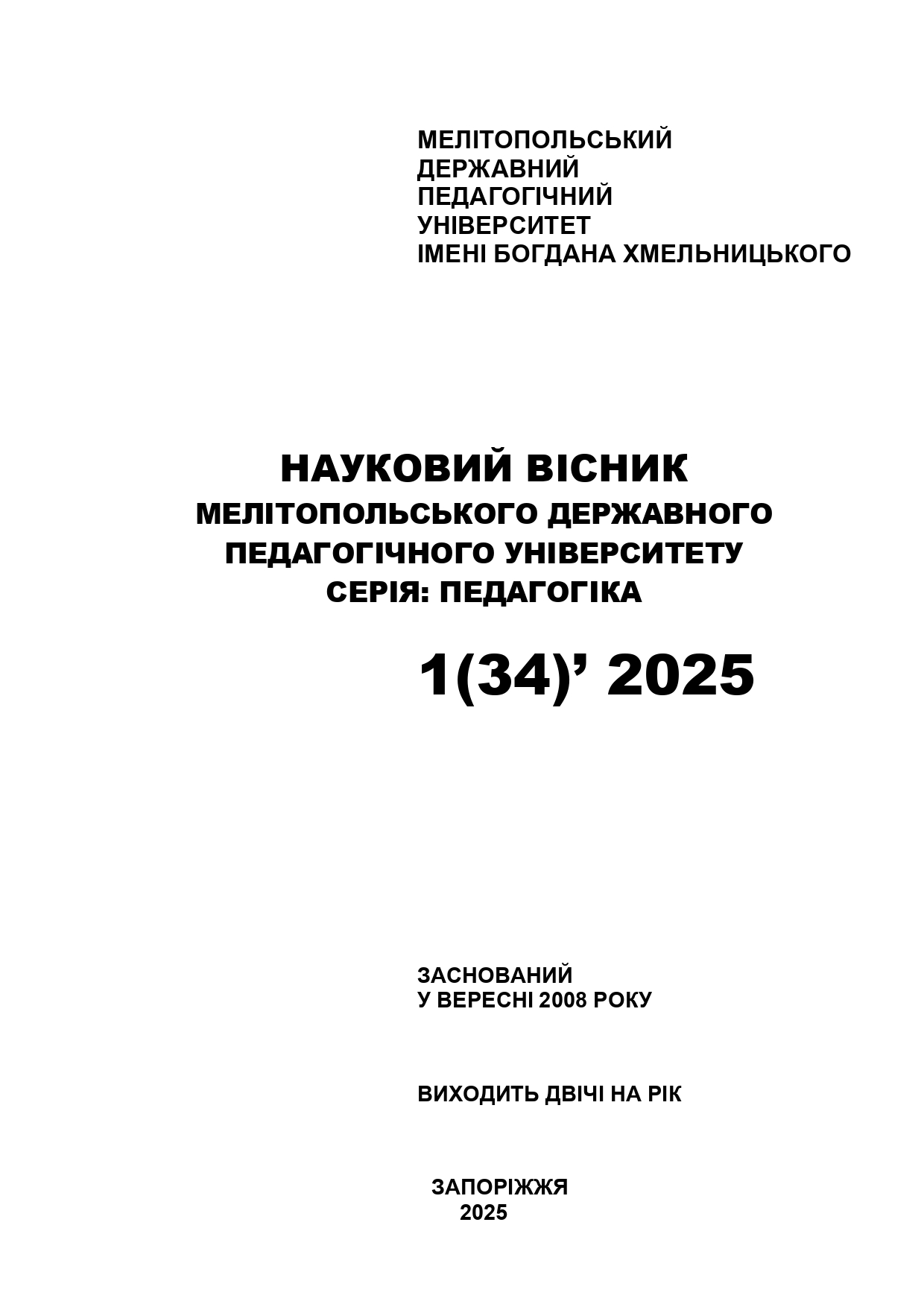ЗАРУБІЖНИЙ ДОСВІД З РОЗРОБКИ ГЕЙМІФІКАЦІЙНИХ СТРАТЕГІЙ У ПРОЦЕСІ НАВЧАННЯ ФАХІВЦІВ З ЦИФРОВИХ ТЕХНОЛОГІЙ
Анотація
У статті систематизовано існуючі підходи до тлумачення
поняття «гейміфікація»: психологічний підхід, навчальний
підхід, соціальний підхід, технологічний підхід, економічний
підхід, когнітивний підхід. У кожному з перелічених підходів
підкреслено
різні
аспекти та переваги поняття
«гейміфікація». Також у статті визначено особливості
запровадження гейміфікаційних стратегій у процесі
навчання фахівців з цифрових технологій у різних країнах:
США, Великій Британії, Швеції, Норвегії, Австралії, Канаді та
Японії.
Крім того, у дослідженні наголошено, що
гейміфікація в освіті за кордоном робить навчальний процес
більш інтерактивним, залучаючи студентів та підвищуючи їх
мотивацію. Аналізуючи зазначену інформацію, визначено,
що
спільною
характеристикою
використання
гейміфікаційних стратегій у навчанні фахівців з цифрових
технологій є обов’язкове застосування різноманітних
цифрових технологій, а саме: Coursera та edX, Codecademy,
Khan Academy, Google Digital Garage, Microsoft Learning
Pathways, Hackathons, в також змагання та віртуальні
симуляції.
Водночас використання гейміфікаційних
стратегій в процесі навчання фахівців з цифрових
технологій передбачає існування ряду проблем: різні
навчальні цілі, технологічні бар’єри, відсутність належної
підготовки викладачів, психологічний тиск, невизначеність у
мотивації, обмежена адаптація, складність у вимірюванні
ефективності, ігри не для всіх, витрати ресурсів, культурні
відмінності. З метою визначення ефективних методів, за
допомогою яких доцільно оцінювати вплив гейміфікації на
навчальний процес підготовки фахівців з цифрових
технологій було визначено такі методи: кількісні методи,
якісні методи, спостереження, порівняльний аналіз, аналіз
даних з навчальних платформ, методи самооцінки.
Зроблено висновок, що вказані методи дозволяють
отримати комплексне уявлення про вплив гейміфікації на
навчальні результати, враховуючи як кількісні, так і якісні
аспекти навчального процесу.




